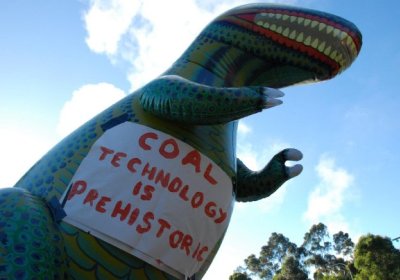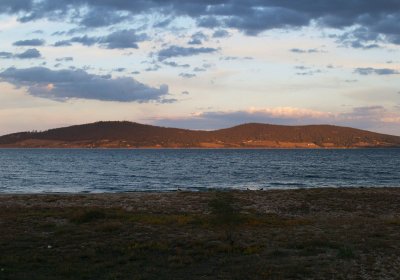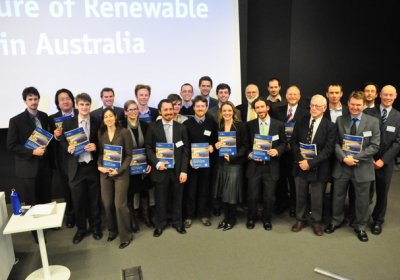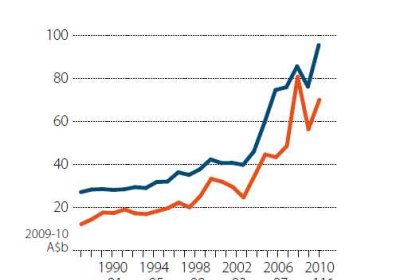"Stop Unimin from totally destroying Stradbroke Island”, Aboriginal leaders Dale Ruska and Sam Watson, urging supporters to attend a rally outside the Magistrates' Court on July 14. “Stop this mining vandal and thief. The Stradbroke Island people need your support. The state government has taken Unimim to court. They must be judged and they must be stopped!"
Environment
On July 12, state environment minister Donna Faragher approved an additional three coal-fired power stations in Western Australia. These power stations will contribute to a 75% increase in the state’s greenhouse emissions, according to the Environmental Protection Authority.
Of the three power stations, one is a brand new private sector development. The other two are older power stations that were built in the 1960s and have not been in use for some time, which will be expanded and refurbished. This will more than double the number of coal-fired power stations in Collie.
Pressure is now bearing down on the Australian climate movement because there has been so little forward progress in the federal government’s climate policy.
The pressure is for the movement to accept, support and campaign for weak and inadequate climate policies on the grounds that something is better than nothing.
This is plain from looking at the new, media-driven “consensus” about the need for a “price on carbon”.
Forty activists held a protest on July 15 against the expansion of the Olympic Dam uranium mine.
They blockaded the entrance to highlight the catastrophic effects the mine and its expansion would have on traditional owners, their land and future generations.
Catrina Staurmberg, at the protest, said: “This is a toxic mine, no one is safe. Radioactive material does not discriminate. If the open-cut expansion or any kind of uranium mining continues it will put many lives at risk across the country.
The article below is the Socialist Alliance’s updated Climate Charter. For more information, visit the Socialist Alliance website.
* * *
For years, climate scientists have warned us that we need to act on climate change. Now, science is saying that climate change is taking place more rapidly than everyone previously thought.
The warning signs are obvious. April and May were the world’s hottest months since records began. This year’s Arctic ice sheet melt is taking place at a pace never seen before.
SYDNEY — Dr Adam Lucas, the Sydney coordinator of the climate research and advocacy group Beyond Zero Emissions (BZE), told a July 14 meeting that BZE's stationary energy plan showed it was possible for Australian to move to 100% renewable energy in a decade.
Lucas gave an outline of the report, which will be launched publicly in Sydney in August.
Existing levels of greenhouse gases may be enough to push Arctic temperatures 19°C higher, a recent study has found.
A University of Colorado at Boulder scientific expedition to Ellesmere Island in the high Arctic found evidence that the ice cap may be far more sensitive to warming than had been thought, the team said on June 29.
The team used fossil records to measure temperatures on the island during the Pliocene period — 2.6 to 5.3 million years ago.
The research confirmed the area was mostly ice-free and about 19°C warmer on average than it is now.
I’m a climate change activist and have lived in Hobart for five years. During that time, I’ve been involved in the campaign against the Gunns’ pulp mill, through the group Students Against the Pulp mill. More recently I’ve been a member of Climate Action Hobart.
I’m running as a candidate for the Socialist Alliance for the seat of Denison in the August 21 federal election.
Tasmanian Premier David Bartlett announced on June 22 that he “accepted the [state] Planning Commission’s recommendation” to reject the Lauderdale Quays canal estate proposal at Ralphs Bay. “It found the proposal was unsustainable, and not consistent with the objectives of the planning system or the state coastal policy”, Bartlett said.
About 650 people packed into a Melbourne university lecture theatre to see the launch of the Zero Carbon Australia 2020 Stationary Energy Plan on July 14.
Held jointly between Beyond Zero Emissions and the Melbourne University Energy Institute, the event heard from a number of speakers about how renewable energy could power Australia.
Just days after the ALP replaced Kevin Rudd with Julia Gillard as PM, Rio Tinto boss Tom Albanese delivered a blunt warning to governments around the world, especially Third World governments, not to be tempted to go for what he called “resource nationalism”.
“As you know, the original May proposal for a super tax caused a furious national debate in Australia”, Albanese told a gathering of mining executives and big investors at Lord's in London.
Peoplequake: Mass Migration, Ageing Nations & the Coming Population Crash
By Fred Pearce
Corgi Books, 2010, 352 pages
Review by Martin Empson
In the 200 years since the Reverend Thomas Malthus first penned his tract, An Essay on the Principle of Population, the question of the “carrying capacity” of the planet has repeatedly appeared.
Most recently, mainstream debates around how to solve the question of climate change have boiled down to the simplistic argument that “there are too many people”.
- Previous page
- Page 285
- Next page











